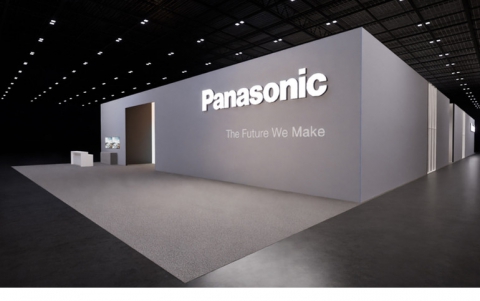
Record Industry Claims Court Cases Against Internet Piracy Work
Last year saw big advances and key legal victories in the record industry's fight against massive illegal Internet peer-to-peer (P2P) file-sharing, the head of the world recording industry association, the IFPI, said.
Speaking in Cannes John Kennedy called on Internet Service Providers (ISPs) who give users access to the Internet, to start policing it by denying access to persistent illegal file sharers.
And he condemned the French government's recent move to enable users to download unlimited digital music and films for personal use.
The judgements by four courts in three continents, including Australia, Korea and the United States, represented "a real sea change world-wide" and one that will help the budding digital music business grow, Kennedy told reporters on the opening day of the world's MIDEM music trade fair.
"We believe we are containing the problem," Kennedy said, describing as misleading recent press reports that the court cases were not stemming the haemorrhaging caused by the enormous online piracy around the world.
He argued that the industry's decision to instigate some 20,000 lawsuits against individuals who illegally share music over file-sharing networks across 17 countries "are changing consumers' attitudes".
Legal downloads of single music tracks more than doubled in 2005 to 240 million, helping the music industry to achieve a three-fold increase in global revenues to 1.1 billion dollars, the IFPI reported last week.
But these revenues would have been even larger if it had not been for illegal file sharing, which continues to be widespread around the globe.
Of the one billion songs downloaded from the Internet in France last year alone, just 20 million were bought legally, EMI Europe chief executive officer Jean-Francois Cecillon told a MidemNet conference Saturday.
"That's not even theft, that's pillage," Cecillon said.
The real problem is not the new Internet downloaders, who on the whole pay for their music, but the seasoned P2P users who are proving very difficult to wean away, Kennedy said.
As for the situation in France, Kennedy said he was optimistic that France would not go through with its proposals, which would legalize Web piracy.
Such a measure would kill France's own music industry and "I can't believe that at the end of the day, the French government will want this," he said.
But Internet piracy aside, Kennedy remained optimistic about the emerging market for digital music. He said he believed that digital music revenues will rise steadily over the next few years and should account for 25 percent of total music revenues 2010.
And he condemned the French government's recent move to enable users to download unlimited digital music and films for personal use.
The judgements by four courts in three continents, including Australia, Korea and the United States, represented "a real sea change world-wide" and one that will help the budding digital music business grow, Kennedy told reporters on the opening day of the world's MIDEM music trade fair.
"We believe we are containing the problem," Kennedy said, describing as misleading recent press reports that the court cases were not stemming the haemorrhaging caused by the enormous online piracy around the world.
He argued that the industry's decision to instigate some 20,000 lawsuits against individuals who illegally share music over file-sharing networks across 17 countries "are changing consumers' attitudes".
Legal downloads of single music tracks more than doubled in 2005 to 240 million, helping the music industry to achieve a three-fold increase in global revenues to 1.1 billion dollars, the IFPI reported last week.
But these revenues would have been even larger if it had not been for illegal file sharing, which continues to be widespread around the globe.
Of the one billion songs downloaded from the Internet in France last year alone, just 20 million were bought legally, EMI Europe chief executive officer Jean-Francois Cecillon told a MidemNet conference Saturday.
"That's not even theft, that's pillage," Cecillon said.
The real problem is not the new Internet downloaders, who on the whole pay for their music, but the seasoned P2P users who are proving very difficult to wean away, Kennedy said.
As for the situation in France, Kennedy said he was optimistic that France would not go through with its proposals, which would legalize Web piracy.
Such a measure would kill France's own music industry and "I can't believe that at the end of the day, the French government will want this," he said.
But Internet piracy aside, Kennedy remained optimistic about the emerging market for digital music. He said he believed that digital music revenues will rise steadily over the next few years and should account for 25 percent of total music revenues 2010.





















